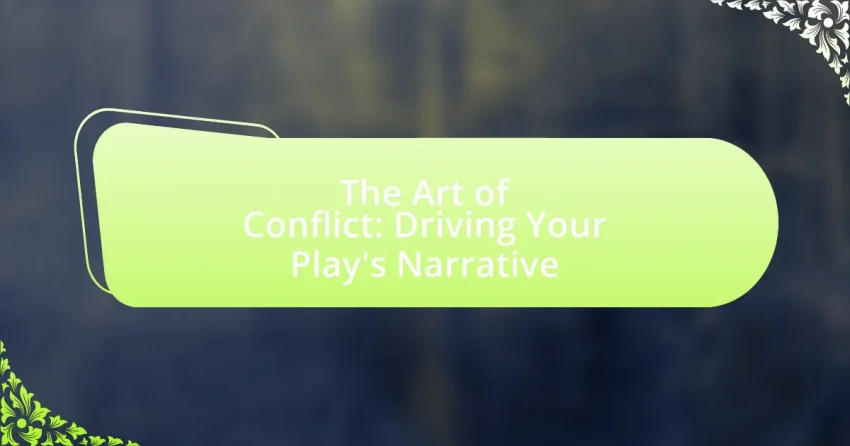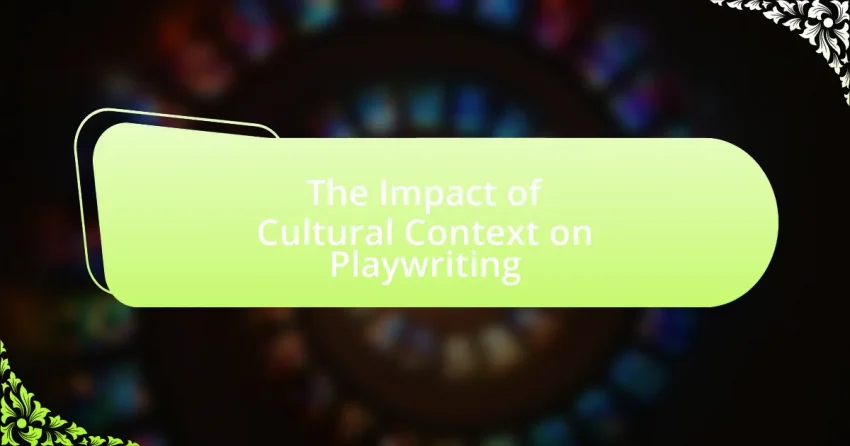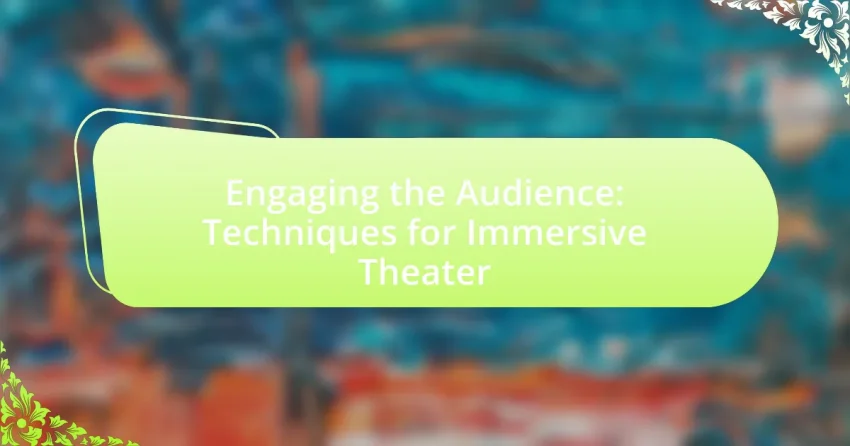The article “The Art of Conflict: Driving Your Play’s Narrative” explores the essential role of conflict in theatrical storytelling. It examines how conflict serves as the primary mechanism that propels a play’s narrative, shapes character development, and engages the audience. The article categorizes various types of conflict, including character versus character, self, society, and nature,…
The Evolution of Contemporary Playwriting Styles
The article examines the evolution of contemporary playwriting styles, highlighting key characteristics such as diverse narratives, innovative structures, and a focus on social issues. It explores how historical influences, major theater movements, and cultural shifts have shaped modern playwrights’ approaches to character development and thematic exploration. The discussion includes the impact of realism, absurdism, and…
The Impact of Cultural Context on Playwriting
The article examines the significant impact of cultural context on playwriting, highlighting how it shapes themes, character development, and audience reception. It discusses the influence of societal values, historical events, and cultural narratives on the narratives created by playwrights, using examples such as “A Raisin in the Sun” and “Death of a Salesman.” The article…
Exploring the Future of Playwriting in a Digital Age
The article explores the future of playwriting in a digital age, emphasizing the impact of technology on storytelling and audience engagement. It highlights how digital platforms and tools are reshaping play distribution, enabling playwrights to reach wider audiences and experiment with innovative narratives. Key trends such as immersive storytelling, the integration of multimedia elements, and…
Navigating the World of Play Submissions: Tips for Success
Play submissions refer to the process by which playwrights submit their scripts to theaters, festivals, or competitions for potential production. This article outlines the essential components of play submissions, including the importance of adhering to specific guidelines, the significance of formatting, and the role of feedback in enhancing a playwright’s work. It also addresses common…
Engaging the Audience: Techniques for Immersive Theater
Engaging the audience in immersive theater is a transformative approach that actively involves spectators in the performance, allowing them to interact with the narrative and characters. This article explores the techniques used to foster audience engagement, such as breaking the fourth wall, non-linear storytelling, and environmental immersion. It highlights the differences between immersive and traditional…
Dialogue Dynamics: Writing Natural Conversations in Plays
The article focuses on the key elements of dialogue dynamics in plays, emphasizing character voice, subtext, pacing, and interaction. It explores how character development and backstory influence dialogue authenticity, as well as the impact of character relationships on conversational tone. Techniques for creating natural-sounding dialogue, including the use of interruptions, pacing, and emotional expression, are…
Exploring Themes: How to Weave Meaning into Your Script
The article “Exploring Themes: How to Weave Meaning into Your Script” focuses on the essential role of themes in scriptwriting, highlighting key elements such as conflict, character development, and transformation. It discusses how themes enhance storytelling by providing deeper meanings and emotional connections for the audience. The article also outlines methods for identifying and integrating…
Developing a Unique Voice: Finding Your Style as a Playwright
The article focuses on the importance of developing a unique voice as a playwright, emphasizing how a distinct style and perspective can differentiate a playwright’s work in a competitive field. It explores the key elements that contribute to a playwright’s voice, including language, character development, and thematic focus, while highlighting the influence of personal experiences…
Collaborating with Directors: Building a Strong Playwriting Partnership
The article focuses on the collaboration between playwrights and directors, emphasizing the importance of their partnership in shaping theatrical productions. It outlines the roles of each party, highlighting how effective communication, mutual respect, and feedback contribute to a successful creative process. The article also discusses the stages of collaboration, common challenges, and best practices to…









